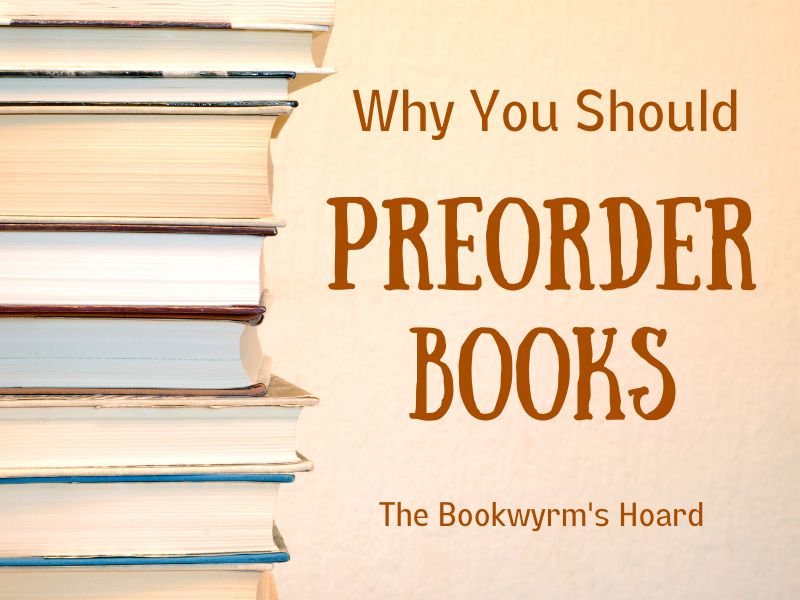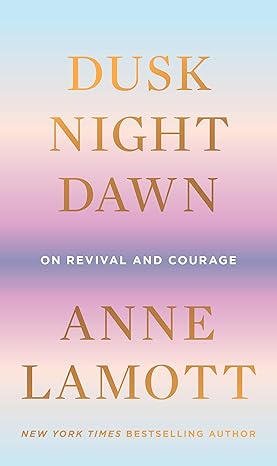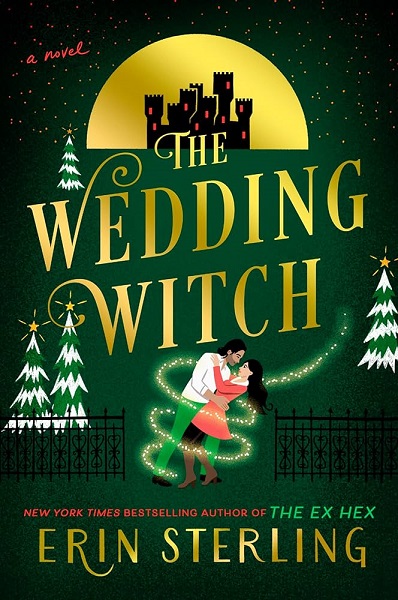Why you should preorder books:
It’s like giving Future You a present! You preorder the book now, in whatever format you want. Then you forget about it, and when the book arrives on your doorstep or in your ereader or audiobook account, it’s a lovely surprise. And who doesn’t love unexpected book mail?
You don’t have to keep track of when the book comes out. You know you want to read it the minute it comes out. But then you forget to order it, and suddenly it’s out, and everyone is talking about it or reviewing it, and you can’t avoid spoilers. If you preorder, you usually get the book on the release day, without having to remember when that is. Some books don’t ship for arrival on the release date, but many of them do. And ebooks will magically turn up on your device.
Some online retailers have a best-price guarantee. That means you preorder it now, and whatever the best price is between now and when the book releases, that’s what you will pay. (Check with the retailer to make sure they have this policy.)
You might not have to pay until the book comes out. Most online retailers won’t charge you until the book actually ships or is sent to your digital library, depending on the format. Some physical bookstores may have a similar policy. (As always, don’t assume; check with the retailer first.)
And finally, the number one reason to preorder books?
It supports the book, the series, and the author.
Preorders aren’t counted as sales until the first day the book comes out. In other words, all the preorders count as sales on Day 1, which makes it look like a whole lot of people bought the book at the same time. (Which technically, they did, even though those preorders were actually spread out over weeks or months.) That has two results:
Better sales numbers boost visibility. High sales numbers on day one can propel a book into the top ten or twenty in its category, which in turn leads to more chances for other readers to see the book while browsing online. As author Karen Healey of That Healey Girl says,
This means that every bookseller algorithm sees a (hopefully!) large number of sales on the first day and goes, “Oh, lots of people like this book! I should promote it to more people who haven’t bought it, and might like it!” Then (hopefully!) more people buy it and like it and tell their friends, and the algorithm tells more people that they might like the book, and they buy it and like it and tell their friends and it’s a beautiful circle of joy and book sales, and eventually I get to do this full time. And you get more books.
Karen Healey, That Healey Girl
Better sales help the author get more (and better) contracts. Sales figures influence publishing contracts. Good sales increase the author’s chance of getting more books published.
Look, publishers want to make money. They won’t continue publishing an author or a series that isn’t selling well. And it can happen to anyone! I have seen even popular, well-established authors put out the first book in a series, only to have the series cancelled because the book didn’t sell as well as expected. (see bottom of page for examples) Or maybe their books sell well enough to finish out the current contract, but then the publisher doesn’t want to contract for any more books in the series.
This can hit an author hard, especially if they have already written (or partially written) the next book in the series. And it’s particularly rough on new authors, because it can make it hard to get a new contract for any book at all.
Better sales mean more money for the author. The better the book sells, the more chance the author will earn out their advance (the money they were paid up front.) After that, they earn royalties on every copy sold. The sooner an author earns out their advance, the sooner they start collecting royalties. Most full-time writers will tell you that royalties, over the years, are an important part of their income stream.
A book that sells well early on tends to go on selling. It’s not just the bookseller algorithms, but the word-of-mouth recommendations, reviews, and buzz that are generated when a book does well. The more a book gets seen and talked about, the more it sells (usually.) So preordering is a way to encourage long-term sales, as well as boosting the initial sales numbers.
And the more money the author makes, the more likely they are to keep writing. Maybe they can even quit their day job to write more books!
So there you have it!
Preorders are a great way to treat yourself and support your favorite authors!
A final note: Look, I know not everyone can afford to buy new books. Some of you may not be able to afford to buy books at all, and that’s OK. That’s what libraries are for! But even if you have a generous book budget, if you read a lot, you probably can’t afford to buy all the books you read, let alone buy them at new-release prices.
If you can’t afford to preorder a book, there are plenty of other ways to support the author, from posting reviews to boosting it on social media. But if you’re planning to buy the book eventually, please consider preordering if you can.
Personally, I do limit my preorders, because budget. But I do preorder some of my auto-buy authors. Mostly, I focus on midlist or new-ish authors that I really want to support, and one or two self-published authors. For instance, I will preorder anything by Mary Robinette Kowal or Stephanie Burgis or Celia Lake, because I want them to be able to keep writing. I also preorder books in series that I really want to keep going, for the reasons I mentioned above.
*Examples: Mary Jo Putney’s The Stone Saints series (The Marriage Spell) and the One Dozen Daughters series by Mercedes Lackey and James Mallory (The House of Four Winds) were either cancelled or never extended; both “series” contain exactly one book each. Shana Abe’s YA historical-fantasy-romance series, The Sweetest Dark, was apparently cancelled by the publisher after the first two books; the author eventually released book three on her own, but it was a long wait.






































Katherine
I do try and preorder books – especially from newer or less well known author. I love Nora Roberts but I figure preordering her books means less than it does to a smaller author. This was really interesting about how preorders are counted and just how important they are I will definitely keeper a closer lookout for new books from favorite authors.
Marianna @ Tell Me a Yarn
I only pre-order a book once and that was at a book con. I got confuse and though I had to buy the book so I can get the ARC signed.